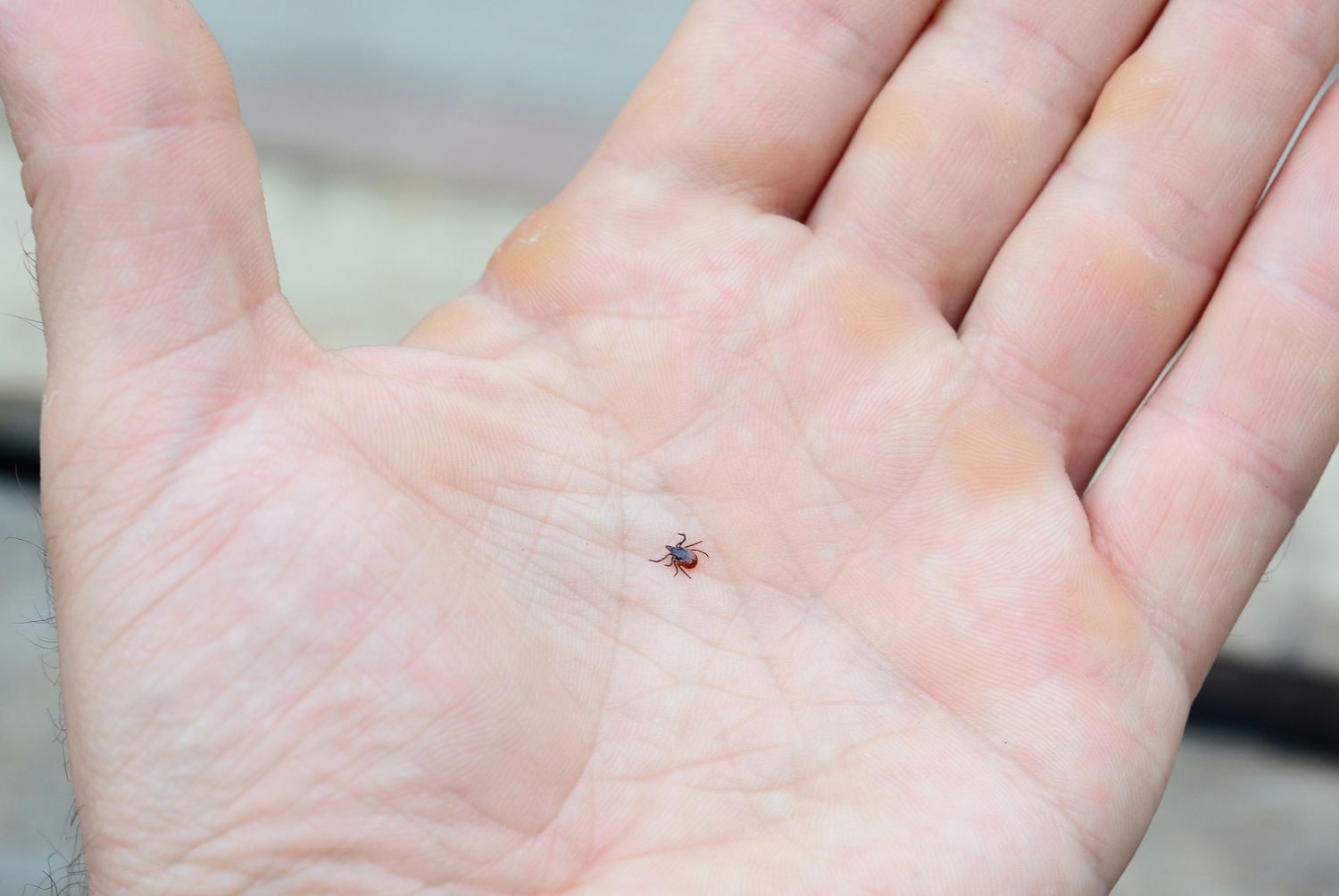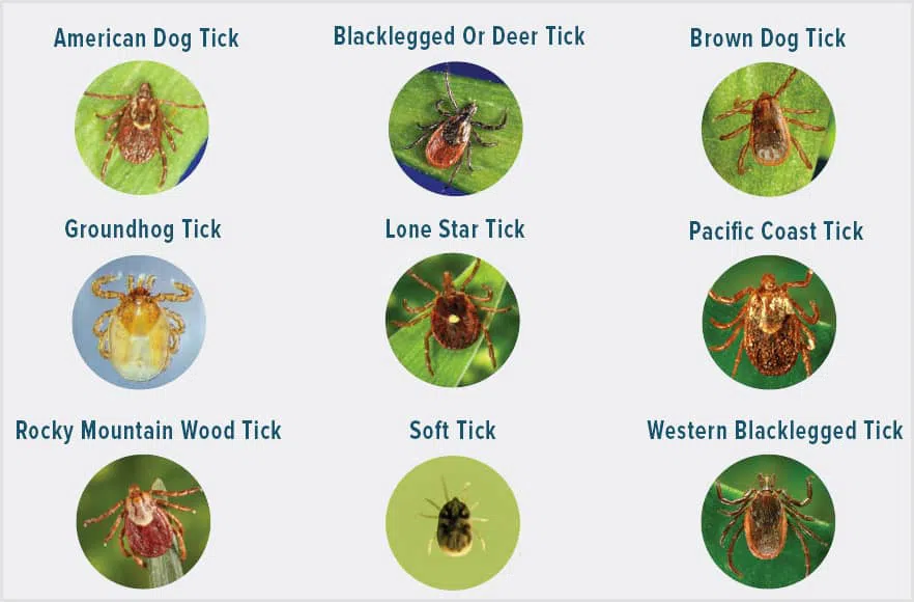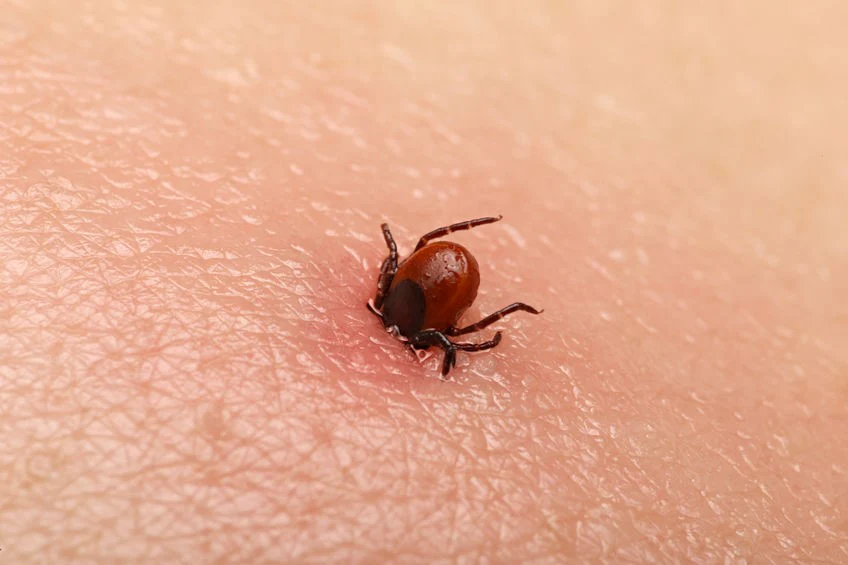Florida’s warm climate and lush landscapes create an inviting environment for people who enjoy year-round outdoor activities. However, these same subtropical conditions also support a thriving community of pests, including ticks. These parasitic arachnids attach themselves to hosts—often pets or wildlife—and can carry pathogens that spread illnesses. Because ticks can be active for much of the year in Florida, property owners in Apopka and the nearby communities of Plymouth and Zellwood often seek out reliable tick exterminator services to keep infestations at bay. This service page delves into why ticks are such a concern in Florida, the types of ticks commonly encountered, and how a comprehensive tick treatment plan can protect both people and animals from needless risks.
Why Ticks Thrive in Florida

- Mild Winters
Unlike regions with harsh, freezing winters, Florida experiences only mild temperature drops for short periods. Ticks remain active when the weather stays above certain thresholds. In states with extended frosts, tick populations typically decline over winter. In Florida, the lack of extended freezes allows tick life cycles to continue uninterrupted, letting them feed, breed, and spread across multiple seasons. - High Humidity and Regular Rainfall
Ticks need moisture to survive, and Florida’s environment often provides ample humidity. Frequent rain keeps vegetation damp, offering ticks microhabitats where they can climb grasses or shrubs in search of hosts. Properties that feature dense shrubs, lawns, or gardens may inadvertently provide the perfect staging ground for ticks to lie in wait. - Abundant Wildlife
Ticks catch rides on various warm-blooded animals, from rodents and raccoons to deer. Florida’s diverse habitats, including suburban green spaces around Apopka, Plymouth, and Zellwood, maintain healthy wildlife populations. As animals wander through yards or farmland, they deposit ticks that later seek new hosts—potentially homeowners or pets venturing outside. - Year-Round Outdoor Activities
Many Floridians relish time spent outdoors, whether hiking local trails, gardening, or simply relaxing on patios. This frequent human-outdoor interface raises the likelihood of encountering ticks, especially in areas where grass or foliage remains untrimmed. - Minimal Seasonal Dormancy
In cooler climates, ticks may enter a form of diapause during cold months, slowing reproduction. In Florida, with mild and brief cool spells, ticks face fewer constraints. A few mild days can re-stimulate them to resume questing for hosts, meaning there is seldom a guaranteed off-season for these pests.
Common Ticks in Florida
- American Dog Tick (Dermacentor variabilis)
This species often feeds on dogs, but can also attach to humans or other mammals. Typically found in grassy or low-lying vegetation, American dog ticks can transmit certain diseases to both pets and people if not removed promptly. Their medium-brown bodies have noticeable patterns on their dorsal shields. - Brown Dog Tick (Rhipicephalus sanguineus)
These ticks thrive in warmer climates and frequently infest kennels or dog beds, sometimes living indoors if conditions allow. They primarily target dogs as hosts, but in severe infestations, they can bite humans too. Brown dog ticks may cluster in corners or behind furniture, making them more adaptable to indoor life than some other tick species. - Gulf Coast Tick (Amblyomma maculatum)
Often found in coastal areas or near water sources, these ticks latch onto birds, cattle, and other animals. They can transmit pathogens like Rickettsia parkeri, causing mild to moderate illness in humans. Because Apopka and surrounding areas feature wetlands or rivers, Gulf Coast ticks may emerge in local vegetation. - Lone Star Tick (Amblyomma americanum)
Recognizable by the single white dot on adult females’ backs, lone star ticks feed on various animals, including deer, which helps them spread widely. Known carriers of multiple diseases, including ehrlichiosis, these ticks can be quite aggressive in seeking hosts. Overgrown yards or areas with dense wildlife traffic can be prime hotbeds for lone star ticks. - Blacklegged Tick (Ixodes scapularis)
Also called the deer tick, this species can transmit Lyme disease in certain regions, though Florida sees fewer Lyme cases compared to northern states. Still, blacklegged ticks inhabit wooded or brushy spots, occasionally biting humans who pass through. Their small size makes them tougher to spot than larger tick types.
Risks and Reasons for Tick Treatments
- Disease Transmission
Ticks can pass bacteria, viruses, or parasites to hosts through their bites. Illnesses such as Rocky Mountain spotted fever, ehrlichiosis, and others are documented in Florida. While not every tick carries pathogens, the potential seriousness of these diseases underscores the importance of limiting tick encounters. - Pet Discomfort
Dogs and cats that spend time in backyards or on walks are at risk of tick attachment. Frequent bites can lead to irritation, secondary infections, or more serious tick-borne illnesses. In severe cases, heavy infestations might cause anemia, further stressing the animal’s health. Prompt removal of ticks, combined with consistent yard management, protects pets from needless suffering. - Persistent Re-Infestations
Ticks lay eggs in suitable spots, from soil crevices to hidden corners of a home. Because each female tick can produce numerous offspring, ignoring a minor tick presence can lead to large-scale outbreaks, with multiple tick stages waiting to feed on unsuspecting hosts. - Daily Anxiety
Knowing that ticks lurk around the yard or inside a home can discourage families from enjoying outdoor spaces, hamper yard work, or complicate pet owners’ routines. By investing in thorough tick treatments, property owners regain peace of mind, reducing the constant worry of tick bites and the diseases that come with them.

Our Approach: Tick Exterminator Services
- Inspection and Identification
A capable tick exterminator begins by assessing the property. This includes checking yard conditions—such as tall grass, leaf litter, or unmaintained shrubbery—where ticks might cluster. Indoors, basements, crawl spaces, and pet bedding areas are examined for signs of tick presence. Identifying which tick species is involved can refine the best control methods. - Outdoor Yard Treatments
Because many ticks develop in outdoor settings, yard care is central to controlling them. Key techniques include:- Vegetation Management: Trimming tall grass, pruning bushes, and clearing leaf piles that offer moist shelter.
- Perimeter Sprays: Applying targeted products along yard edges and shady spots, killing ticks in the larval or nymph stage before they latch onto hosts.
- Creating Buffer Zones: In some cases, a perimeter of wood chips or gravel between lawn areas and wooded zones can reduce tick migration.
- Indoor Control
While many ticks remain outdoors, certain species (particularly brown dog ticks) may reproduce indoors if conditions are right. Steps for in-home tick control include:- Vacuuming: Removing tick eggs, larvae, or adults from carpets, rugs, and upholstery.
- Targeted Sprays: Applying residual treatments to cracks, baseboards, or behind furniture where ticks might hide.
- Cleaning and Laundering: Washing pet bedding and vacuuming hidden corners reduces tick harborages.
- Pet Care Coordination
Successful tick treatment extends to your pets. Though exterminators do not apply products directly to animals, collaborating with a veterinarian ensures dogs and cats receive appropriate tick preventives—like spot-on treatments, collars, or oral medications. If pets remain untreated, they can reintroduce ticks to the home or yard easily. - Ongoing Monitoring and Maintenance
Because Florida’s climate allows multiple tick species to thrive year-round, scheduling periodic yard treatments or checkups is wise. If high-risk conditions return—like untrimmed lawns or accumulation of yard debris—ticks may rebound. Regular upkeep aligns with a holistic approach, ensuring long-term tick mitigation.
Service Areas: Apopka, Plymouth, and Zellwood
Our tick treatments and exterminator expertise serve Apopka, Plymouth, and Zellwood, addressing residential and commercial properties alike. Each area experiences Florida’s warm, humid environment, which fosters robust insect populations that ticks rely upon for feeding. For homeowners near wooded lots or water sources, tick presence can escalate if conditions are ideal for hosting wildlife carriers.
- Apopka: Rapidly growing neighborhoods and suburban developments blend with green spaces that can harbor deer, raccoons, and other tick hosts.
- Plymouth: Smaller communities might have older properties with extensive yards. Without regular trimming or yard management, ticks can thrive in tall grass or piles of leaves.
- Zellwood: Known for farmland and rural landscapes, this area can see ticks traveling from pastures or wild edges into nearby yards, particularly where pets roam freely outdoors.
Regardless of your location, early detection and consistent yard care are crucial for stopping small numbers of ticks from evolving into a larger infestation.
Why Choose Our Tick Exterminator Service
- Tailored to Florida’s Environment
Rather than using generic pest control, we focus on the unique conditions of warm, humid Florida, where ticks remain active most of the year. Customized yard treatments and in-home strategies align with local tick species’ life cycles. - Thorough Inspection
A methodical property check locates the most likely tick hideouts: dog runs, under decks, around shrubs, or in interior spaces where pets sleep. By pinpointing these high-risk zones, treatments become more precise and effective. - Emphasis on Safety
Tick control often involves applying insecticides outdoors and sometimes in the home. Professionals use selective application methods that minimize exposure to people, pets, and beneficial wildlife, focusing on known tick hot spots rather than blanket spraying. - Collaboration with Pet Owners
Because ticks rely heavily on animal hosts, ensuring your cat or dog is on a reliable tick prevention regimen is vital. While the exterminator deals with the property, a veterinarian can advise on the best products for your pet’s size, breed, and lifestyle. - Long-Term Prevention
Beyond the immediate removal of ticks, a strong service includes guidance on yard upkeep and potential changes. For instance, reorganizing mulch beds, improving drainage, or adding barriers can drastically reduce tick presence over time. Education about checking pets and family members after outdoor activities also prevents hitchhiking ticks from establishing themselves indoors.
- Tailored to Florida’s Environment

Next Steps
If you suspect a tick issue on your property—whether you have found them on your dog, noticed them in your yard, or encountered one indoors—do not delay. Contact us to learn more or schedule your service. A comprehensive tick exterminator approach tackles adult ticks, developing eggs or larvae, and the environmental conditions that let them persist in Florida’s climate.
With timely, tailored tick treatments, you can reclaim your yard for barbecues, gardening, or simply letting pets roam safely without the risk of frequent tick bites. Avoiding the discomfort, potential illnesses, and stress ticks bring is well worth investing in a thorough solution that addresses root causes rather than opting for quick fixes.
Sustaining a Tick-Free Lifestyle in Florida
In a place like Florida, where temperatures rarely force ticks into dormancy, achieving ongoing control involves balancing a few crucial factors—responsible yard management, good pet care, and targeted chemical interventions where necessary. Routine checks of pets, minimal undergrowth in landscaping, and consistent vacuuming in key indoor areas form the backbone of prevention. Combined with professional extermination services to break the tick life cycle, these measures will go a long way toward reducing the presence of ticks around your home or business.
Whether you oversee a busy household with multiple pets, manage farmland where livestock might introduce ticks, or live in a suburban neighborhood with plenty of wildlife, a solid plan ensures your property remains a safer zone for people and animals alike. By enlisting a tick exterminator who understands Florida’s distinctive environment—like the climate in Apopka, Plymouth, and Zellwood—you gain expert insight into controlling ticks and preventing future outbreaks. This proactive stance not only shields your health and well-being but grants you the freedom to enjoy Florida’s natural beauty without fretting over the constant threat of ticks lurking nearby.
